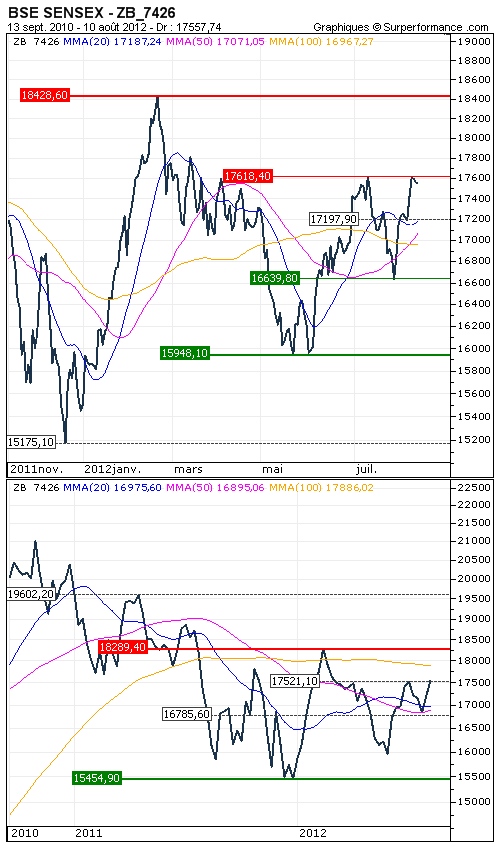SENSEX BSE30 : Waiting for a Government help
By Rodolphe Steffan
The Indian situation was, in fact, deteriorated in recent months. In addition to the global economic slowdown, domestic difficulties such as inflation and the decline in foreign exports may slow GDP growth for fiscal year 2012/2013. Economists now estimate that it will be around 6% against forecasts of 7.5% in April. The outlook for the agricultural sector is also likely to weigh on the economy. The delay of the monsoon and the current low level of rainfall will have a negative impact on annual production.
Indian investors also hope that Germany will approve the new bond buyback plan announced by the ECB last week. The Indian economy is highly dependent on the consumption of European countries. Over the period from April to September 2011, 17% of Indian exports were destined for Europe according to the Ministry of Commerce of India.
Technically, the trend of the index remains bullish in daily data below 17,200 points, threshold coinciding with the 20-day moving average. We will monitor the exit of the range 16,640/17,620. A break of 16,640 points should cause a new consolidation phase toward 15,950/15,500 points. On the upside, the crossover of 17,620 points in weekly closing price paves the way for a further rise toward 18,430 points.


 SENSEX BSE30
SENSEX BSE30 







